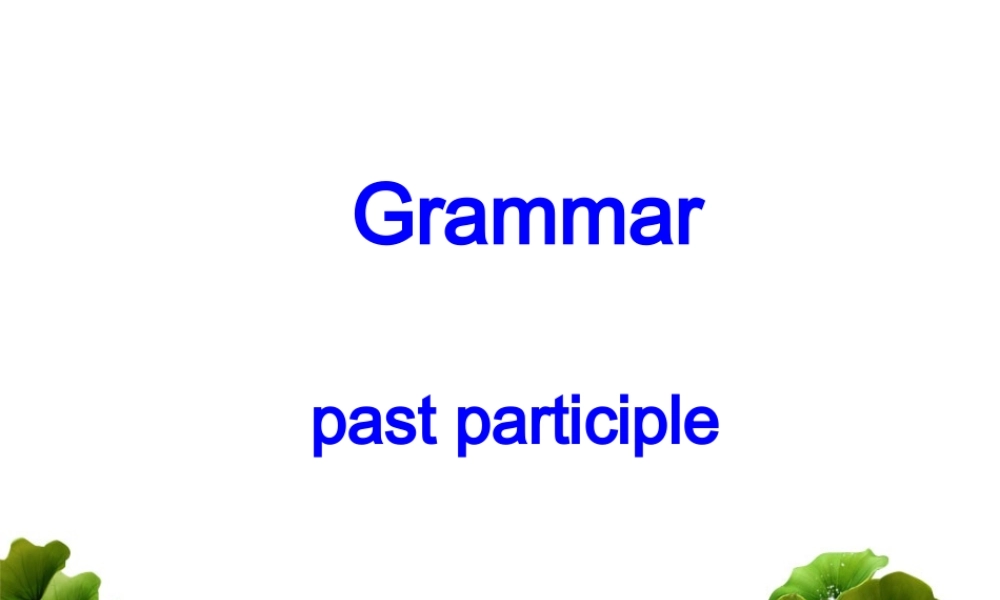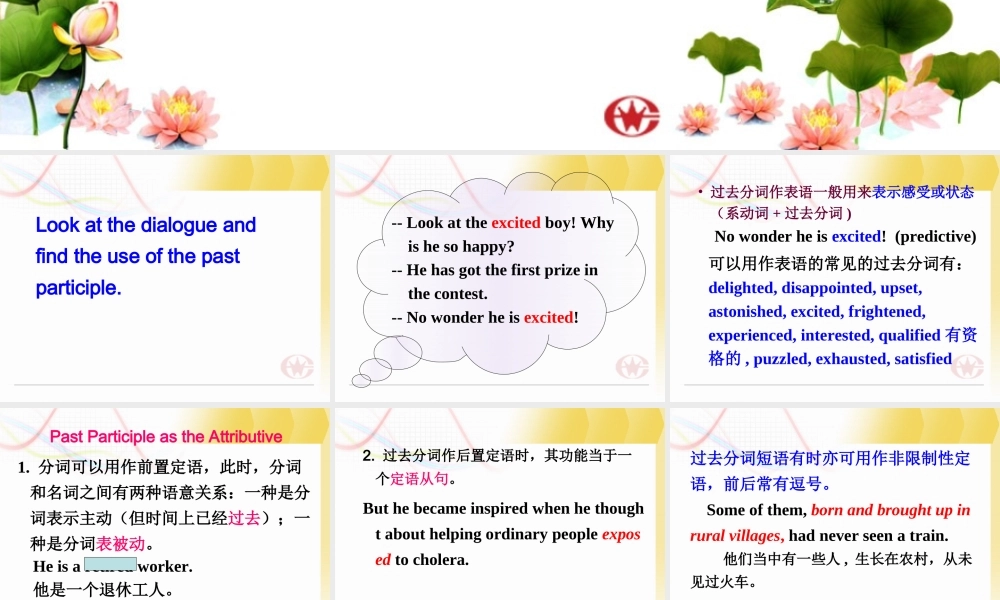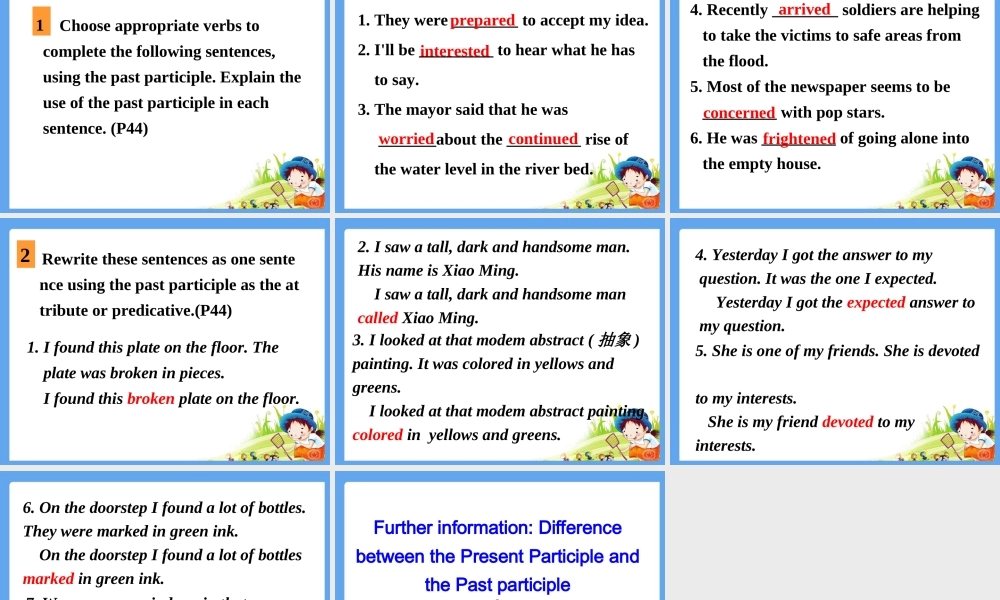Grammar past participle Look at the dialogue and find the use of the past participle. -- Look at the excited boy! Why is he so happy?-- He has got the first prize in the contest.-- No wonder he is excited! • 过去分词作表语一般用来表示感受或状态(系动词 + 过去分词 ) No wonder he is excited! (predictive) 可以用作表语的常见的过去分词有:delighted, disappointed, upset, astonished, excited, frightened, experienced, interested, qualified 有资格的 , puzzled, exhausted, satisfied 1. 分词可以用作前置定语,此时,分词和名词之间有两种语意关系:一种是分词表示主动(但时间上已经过去);一种是分词表被动。 Past Participle as the AttributiveHe is a retired worker.他是一个退休工人。This is a newly-developed device. 这是一个新开发的工具。 2. 过去分词作后置定语时,其功能当于一个定语从句。 But he became inspired when he thought about helping ordinary people exposed to cholera. 过去分词短语有时亦可用作非限制性定语,前后常有逗号。 Some of them, born and brought up in rural villages, had never seen a train. 他们当中有一些人 , 生长在农村,从未见过火车。 •When the past participle is a single word, where do you put, before the noun modified or after it? When the past participle is a phrase, where do you put?Conclusion Past Participle as an attributePast Participle asthe predicative1.terrified people2.reserved seats3.polluted water4.acrowded room5.a pleased winner1.people who are terrified2.seats which are reserved3.water that is polluted4.a room that is crowded5.a winner who is pleasedPractice 1: Complete the table with phrases that have the same meaning. SBp5 Past Participle as an attributePast Participle asthe predicative6.children who look astonished7.a vase that is broken8.a door that is closed9.the audience who feel tired10.an animal that is trapped6.astonished children7....




